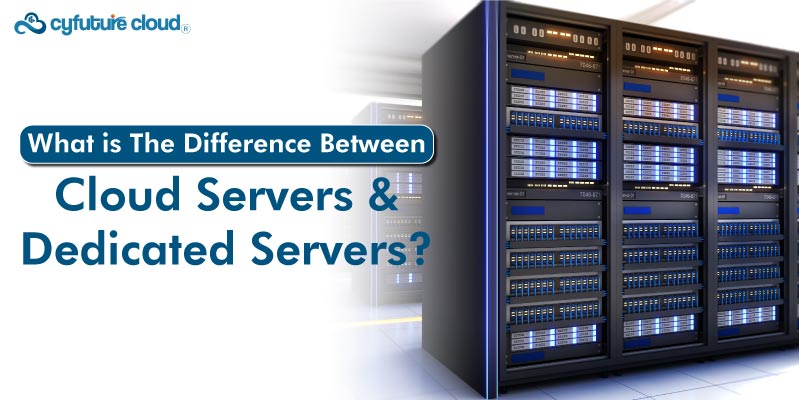Time to host your applications on cloud. Join Now
Time to host your applications on cloud. Join Now

If you are looking for a difference between a cloud server and a dedicated server-In simple ways, Cloud servers are virtual and shared, like renting a room in a building with others, while dedicated servers are physical and exclusive, like owning your own house with no roommates.”
The server space and resources required to publish a website online are provided by web hosting. Web hosting comes in two primary flavours: cloud hosting and conventional dedicated servers. Because cloud hosting offers more flexibility, scalability, and cost-efficiency than traditional hosting, it has essentially superseded the latter.
With cloud hosting, resources may be accessible from anywhere, and charges are determined by utilization rather than set hardware capacity. Moreover, resources can also be scaled up or down on demand. Businesses should weigh their budget, growth goals, security requirements, and technological capabilities when choosing between cloud server vs. dedicated cloud server hosting to find the best fit for their needs.
Due to its benefits, cloud hosting is now a good option for the majority of small and medium-sized organisations; nevertheless, large corporations that want total control over infrastructure and security may still find value in dedicated servers.
In this knowledge base section, we are going to discuss cloud server vs. dedicated cloud server and also cloud vs. dedicated cloud server cost.
So, let’s get started!
A dedicated cloud server is a stand-alone physical server leased to a single client. Unlike shared servers, where several users share the same resources, a dedicated server allows the client total control and access to all server resources, including CPU, RAM, storage, and bandwidth.
Dedicated cloud servers are a popular alternative for major organizations and organizations due to their greater security and performance capabilities. Since they are the only ones with access, the client has more control over security protocols and may customize the server to suit their specific requirements.
However, small enterprises or individuals lacking the requisite technical skills may find a dedicated server less suited due to the expertise and resources required for its management and upkeep. Furthermore, dedicated servers are usually more expensive than shared hosting plans.
Cloud server technology, synonymous with cloud computing, operates by creating a virtualized environment rather than relying on physical hardware to host webpages. This virtual environment utilizes multiple servers to allocate resources and space for your website.
A cloud server essentially uses the combined strength of several virtual servers to provide excellent resource allocation and scalability. In contrast to dedicated servers, the cloud uses a variety of methods to distribute and maintain the content of your webpage without tying it to a single physical place.
The cloud operates entirely in a virtual realm, enabling you to pay only for the resources and space your website consumes, without incurring any additional charges. Cloud server technology is suitable for businesses of all sizes since it provides inexpensive scalability. AWS, Cloud Oye, Cyfuture Cloud, and Google Cloud are just a handful of the several cloud hosting providers that offer an array of services to accommodate various requirements. Please refer to this knowledgebase for a more thorough understanding of the differences between Google Cloud and Amazon Web Services.
Dedicated Server vs. Cloud Server
How difference between private cloud vs dedicated hosting can impact your business? Let’s explore the difference between a cloud server vs. dedicated server.
That’s It!
Still, you have your queries! Feel free to contact our Cyfuture Cloud team of experts to understand the difference between a cloud server vs. dedicated server

Let’s talk about the future, and make it happen!